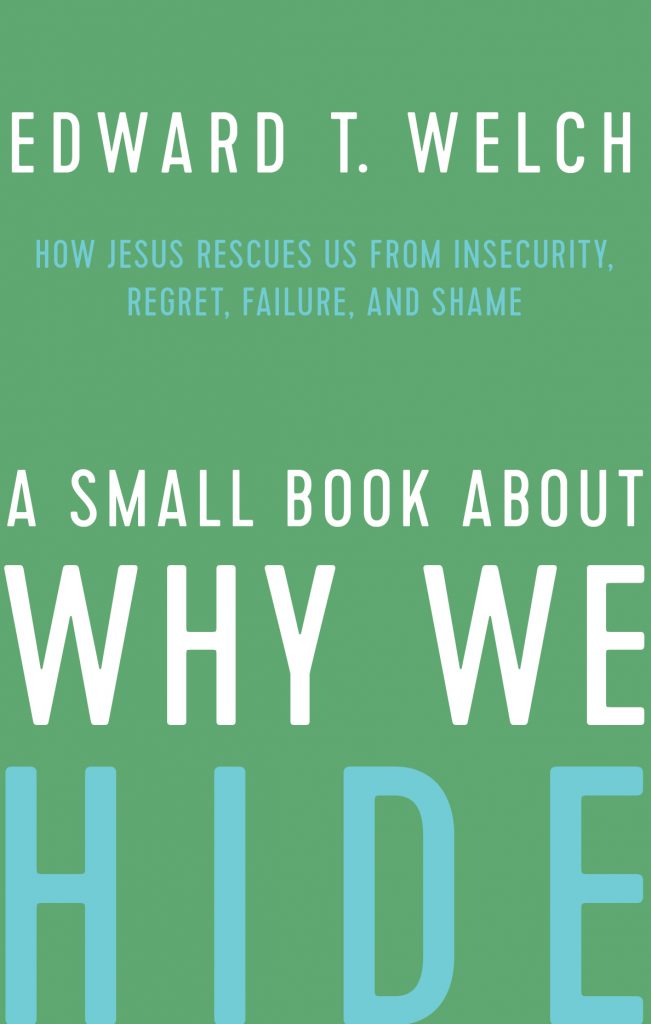Remember, your relationship with God is revealed in your everyday relationships. If you hide parts of yourself from other people, you hide parts of yourself from God. If you hide from God, you will hide from other people. They go together. When you are transparent with the Lord, you will be less terrified to be seen by other people. This is how life works. And this means that we must consider our sin. That is the most obvious reason we hide from God.
Our inadequacies and possible rejection from other people feel like the most pressing problems in life, but there is one deeper. Your sin problem is worse than your insecurity. Sin is your most severe problem. It separates you from other people, and it separates you from the only one who can strengthen you. If you are unconcerned about sin, it means you are indifferent to God.
So we will briefly table those insecurities that can veer off into shame, and we will talk to the Lord about our sin. But confessing sin, as you may have already noticed, is not easy.
First, it helps to remember that sin is personal. It is more than a violation of some heavenly law. In our sin, we put ourselves above God, and we judge God as not enough. Sin is pride and excessive desire.
Second, you must know that Jesus never turns away those who come to him. Never. He is “merciful and faithful” (Hebrews 2:17). Our sin does not please him, but our confession always does. His throne is identified as the “throne of grace” (Hebrews 4:16). He forgives you not because you are worthy of his forgiveness. He delights to forgive you because he is the forgiving God and he is unchangeable. “I am writing to you, little children, because your sins are forgiven for his name’s sake” (1 John 2:12, emphasis added).
Third, God calls you to confess your own sins, not the sins of other people. That means you do not confess displeasing others, unless you actually wronged someone. You do not confess your sense of being substandard by standards other than God’s. You only confess sins that clearly violate the way God has taught you to live.
Fourth, you end with “thank you,” not “I will do better next time.” True confession includes wanting to do better, but you can’t end there. Simple gratitude is the safest way to end.
The words of a psalm can help to guide you.
Blessed is the one whose transgression is forgiven, whose sin is covered. Blessed is the man against whom the Lord counts no iniquity, and in whose spirit there is no deceit. For when I kept silent, my bones wasted away through my groaning all day long. For day and night your hand was heavy upon me; my strength was dried up as by the heat of summer. I acknowledged my sin to you, and I did not cover my iniquity; I said, “I will confess my transgressions to the Lord,” and you forgave the iniquity of my sin.
Psalm 32:1–5
Confession of sin might seem to be a counterintuitive way to combat insecurity because it runs the risk of you feeling even more worthless. But true confession makes God’s love for you more obvious. When you go through a normal day, with its long list of events that didn’t go quite right, you can miss the love of God for you. But forgiveness of sins is a sign of unmistakable and extreme love. Your confession, coupled with God’s forgiveness, will increase your love for him, and that is a powerful way to be less controlled by people’s opinions.
Response
- Take time to confess your sins to the Lord. Start with one or two sins that are most recent. Unbelief is always a good one. It means that you have not always believed what God says in Scripture. Your reluctance to turn to him during trouble could be another. Be sure to end with thanks.
- Can you see how confession of sins to the Lord is good, and not just medicine-that-tastes-bad-but-is-good-for-you. What makes confession hard for you?
Excerpt adapted from A Small Book about Why We Hide: How Jesus Rescues Us from Insecurity, Regret, Failure, and Shame ©2021 by Edward T. Welch. May not be reproduced without prior written permission.






